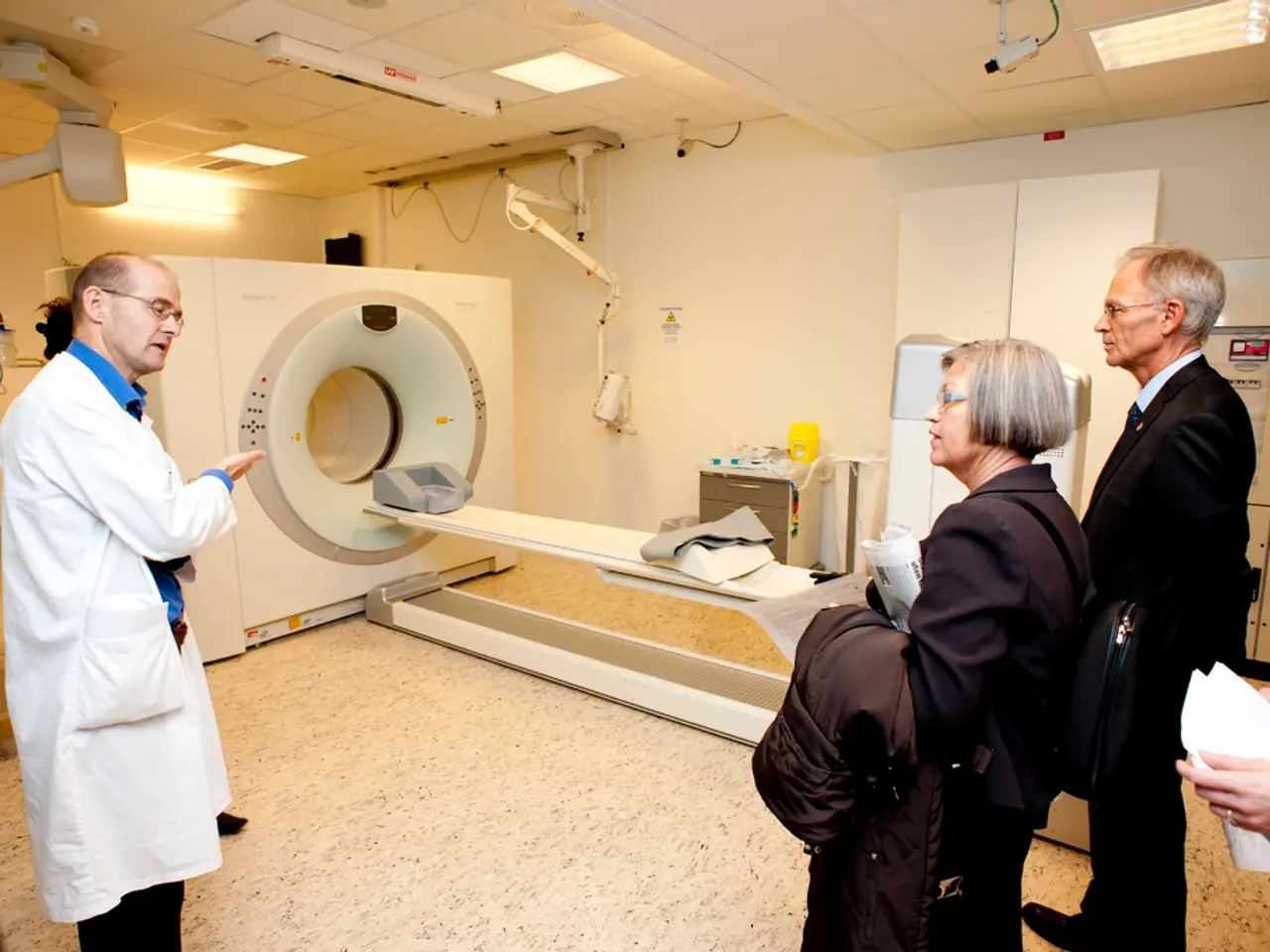Eleven National Health Service (NHS) facilities implement innovative physiotherapy system called Phio.
In a bid to ensure quick access to physiotherapy for everyone who needs it, South Sefton Primary Care Network (PCN) is expanding the use of Phio, a musculoskeletal (MSK) triage and rehabilitation technology, across their area. This move comes as the NHS grapples with a growing demand for physiotherapy services, with an estimated 342,593 patients waiting for physiotherapy as of July 2024, marking the largest single community backlog in England.
Phio, a conversational computational assessment tool, signposts users to the most appropriate care pathway in less than five minutes. It provides a user-friendly smartphone app, Phio Engage, that delivers evidence-based exercise programs, offers 24/7 access to clinicians, and tracks progress and pain scores. The estimated number of registered patients who can start physio care instantly on their phone is 2.3 million.
The adoption of Phio is not limited to South Sefton PCN. Eleven NHS organizations, including East Staffordshire PCN, Sandwell & West Birmingham NHS Trust, NHS Lanarkshire, and NHS Highland, have deployed or signed contracts to use this technology. In Sandwell & West Birmingham NHS Trust, waiting times fell by eight weeks, and more than 1,200 clinical hours were reallocated to complex cases.
In NHS Highland, digital triage is saving around £134,000 in GP time and £29,000 in physiotherapy appointments each year. Moreover, 75% of assessed patients in NHS Highland are managing their condition independently.
Dr Craig Gillespie, GP Trainer and Clinical Director at South Sefton PCN, emphasised that adopting physiotherapy technology like Phio is a significant step forward in treating common issues. He added that the Phio dashboard provides real-time data to help identify where services are most needed and deliver physiotherapy care more equitably.
While the exact locations of Phio physiotherapy services beyond these NHS organizations are not specified, it is clear that this technology is making a positive impact on patient care and reducing wait times across the NHS. As the demand for physiotherapy services continues to grow, the implementation of technologies like Phio is likely to become increasingly important in ensuring that everyone who needs care can access it promptly.
The Chartered Society of Physiotherapy estimates that the NHS would need 12,000 additional physiotherapists to meet the demand. However, with the help of technology like Phio, it seems that the NHS is making strides towards addressing this challenge and providing high-quality, accessible physiotherapy care to all.
[1] It should be noted that while sources do mention PAM Group operating across the UK with a network of over 600 independent associates, offering occupational health services via clinics and mobile units, this does not explicitly confirm the deployment of Phio physiotherapy services beyond NHS institutions.
- The implementation of Phio, a conversational computational assessment tool, extends to various health-and-wellness sectors, including mental-health, fitness-and-exercise, and science, as it delivers evidence-based programs and 24/7 access to clinicians through a user-friendly smartphone app.
- As technology like Phio continues to evolve and penetrate the NHS, there is an opportunity to significantly improve the state of science and healthcare services, bridging the gap created by the growing demand for physiotherapy and the limited availability of professionals, as estimated by The Chartered Society of Physiotherapy.




